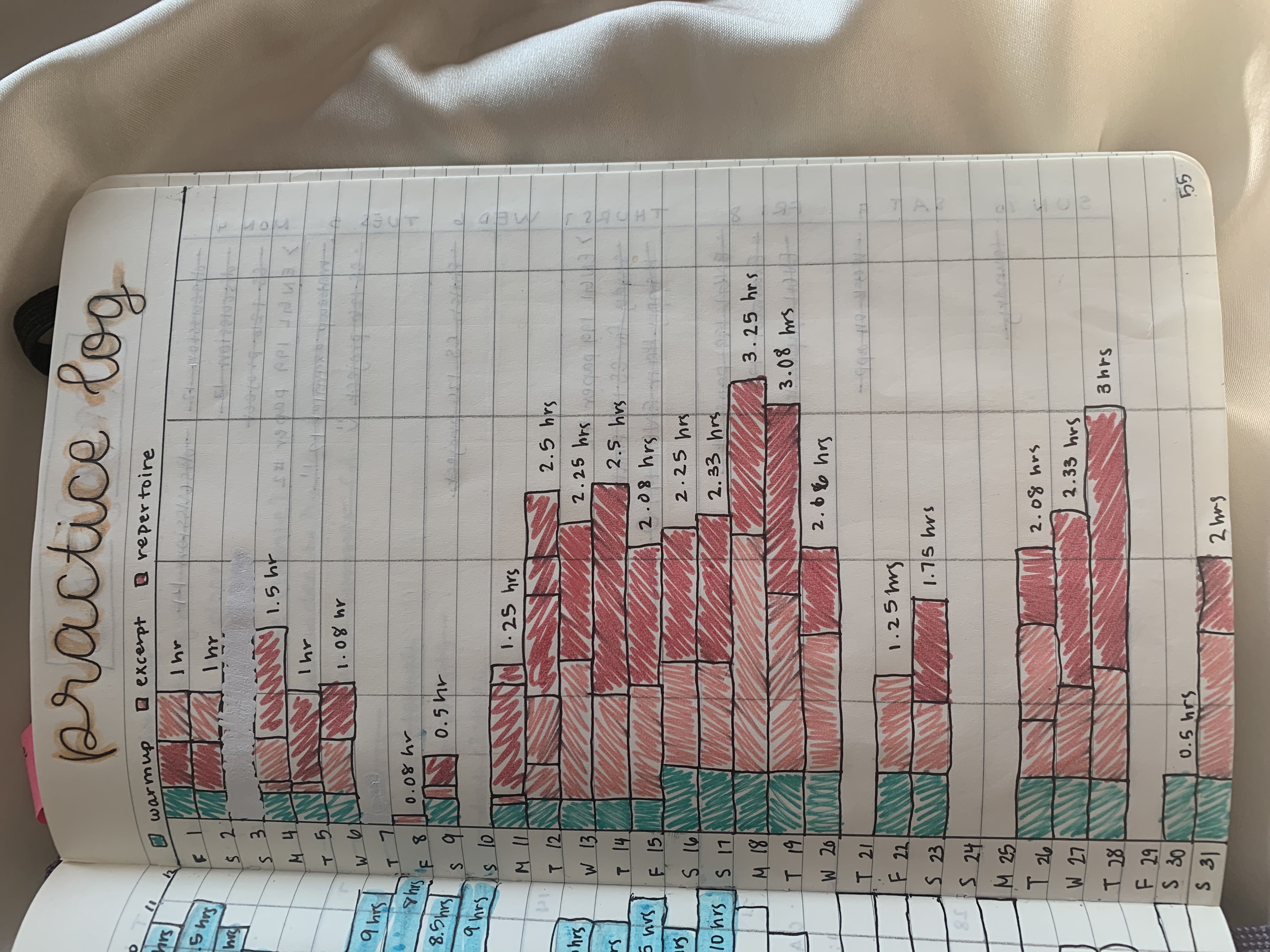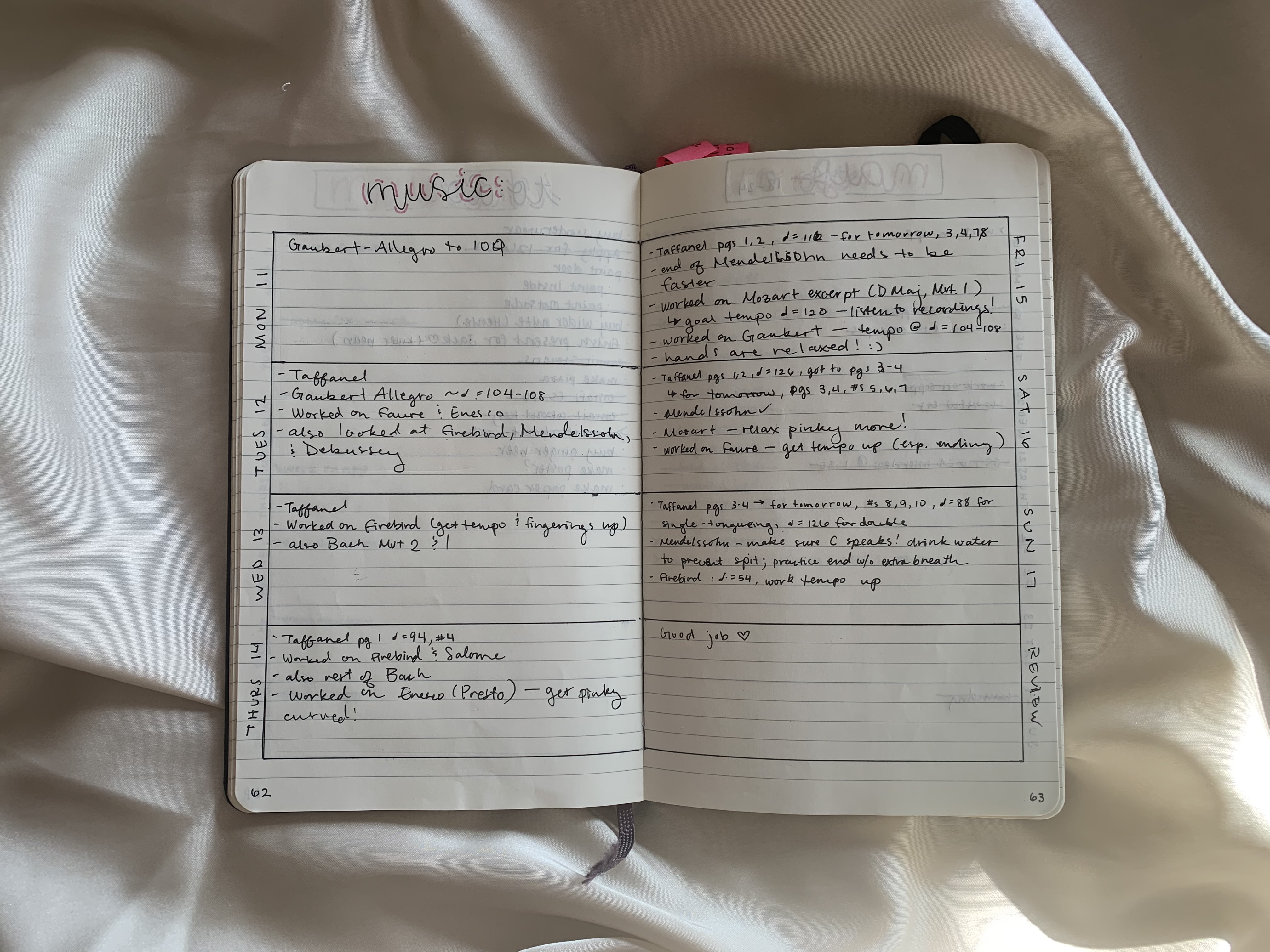Practicing Music
music ·As a music major, practicing is obviously one of the most important things I need to do. However, despite being a music major and having done music for the better part of my entire life, I still sometimes struggle with practicing regularly. Over the years, I have developed a few tricks and ideas to help myself get into the habit of practicing effectively every day.
1. Give yourself a reason.
Why are you practicing? Are you working towards an audition or performance? Or maybe you just want to improve your skills. Whatever it is, if you want to get into the habit of practicing, you need to have some motivation for wanting to practice–other than “my parents/teacher said so”. Once you have this reason, every time you find yourself contemplating skipping a day, just remember what you’re doing it for.
2. Hold yourself accountable.
Find some way to hold yourself accountable each day. If you have a music friend, you can agree to hold each other accountable and practice at the same time, like a gym buddy. Or tell your family and friends about your practice plan, and have them remind you to stay on track. If you don’t have anyone around, create a habit tracker to track how often and how long you practice so that you can visually see your practice habits. Seeing a few days of little to no practing in your tracker might push you to practice more. You can even create a social media account and post a clip of you practicing each day, so that there is some public record of when you practice. I have a private music Instagram that I post on every day I practice so that my friends and I can look back on my practice habits and my progress.
3. Make a practice plan.
Plan what you are going to practice each day. This can be as simple or detailed as you want, but having a plan will help you stay on track, as well as prevent the “I don’t know what to practice so I just won’t” thoughts. My plan looks something like this:
- Warmups
- 15 minutes long tones
- Scales
- Etudes
- 15 minutes long tones
- Audition excerpts / repertoire
4. Keep a practice journal.
In order to make sure you are practicing efficiently, keep a journal to log your practice. Write down what you worked on each day, any problem areas or notes, and what you want to work on for your next practice session. This way, instead of trying to remember everything you did the previous day, you can just look back at your journal and know exactly what to focus on when you practice. I use the bullet journal format to keep track of my progress.
This is my practice log from earlier this year:

And this is one week of my practice notes:

5. Know when to take a break.
This is probably the most important thing to remember when creating a practice schedule, but is often also the most overlooked. Practicing can often be very taxing, both physically and mentally (and if you’re just playing mindlessly through your repertoire, you’re probably not doing it right). It is so crucial to know when you are at your limit, and it is absolutely ok if you need to take a break and skip practicing for a day. Not being able to practice for one day does not mean you are a failure or you are falling behind. Especially in times like now, when stress levels are high and mental health is steadily decreasing, make sure you are not pushing yourself too hard. It’s important to practice, but it’s even more important to value your own health first.
Now, these methods are not fail-safe. I use all of these and I still sometimes find myself struggling to find the motivation to practice. Essentially, it all comes down to you and your willingness to put in the work. But I hope that these ideas will help you along the way.